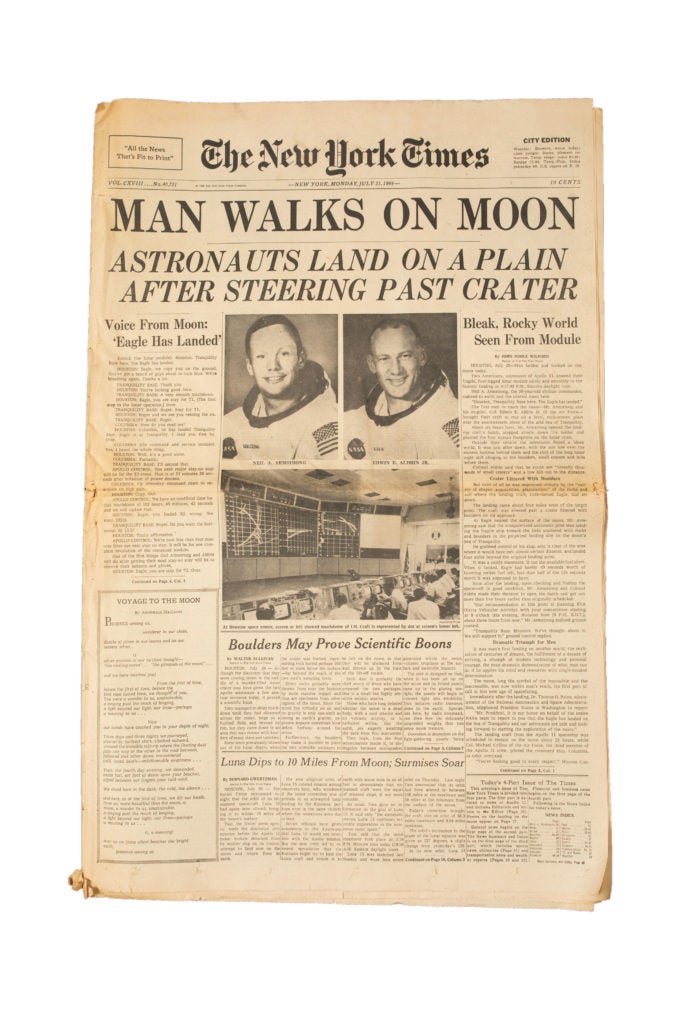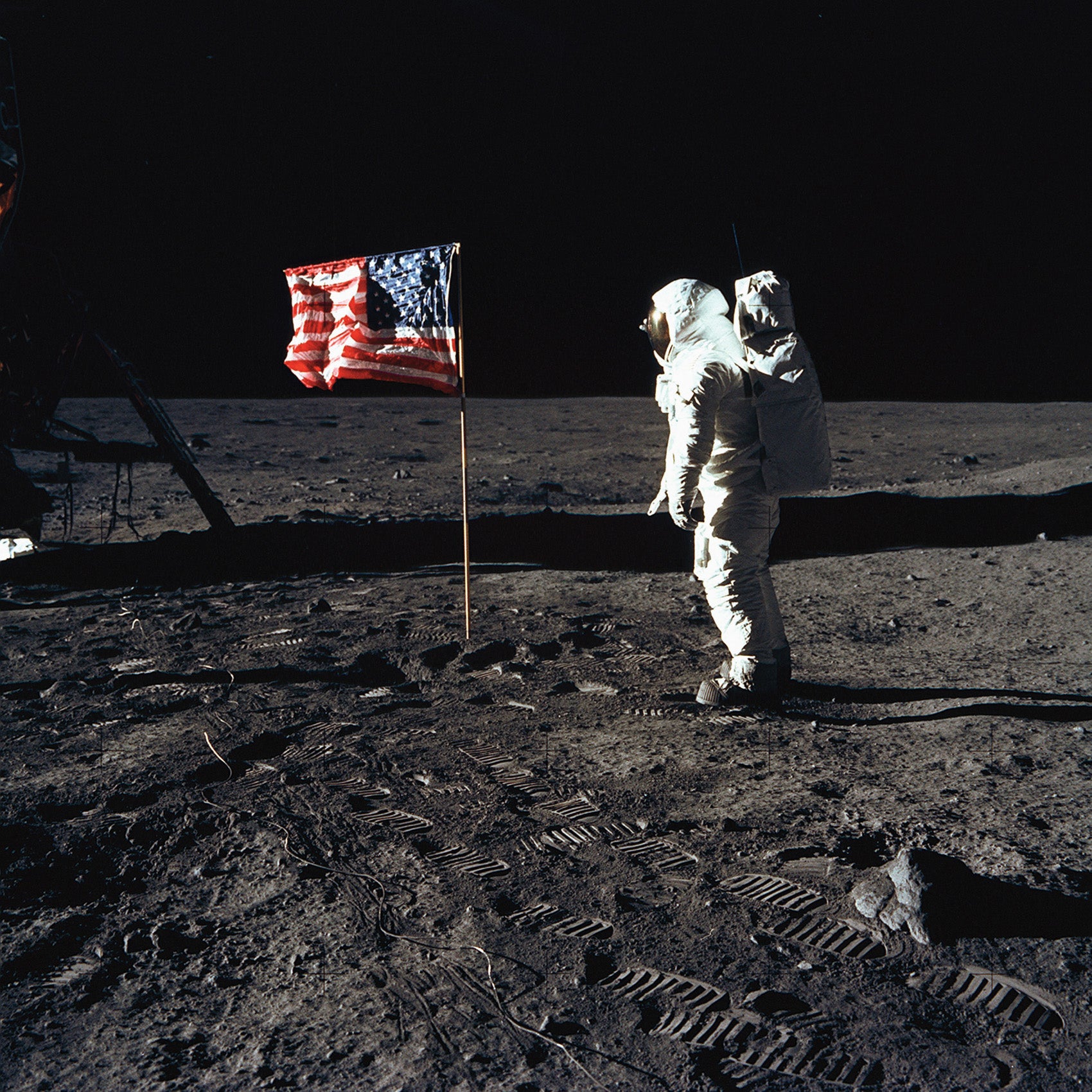When Apollo 8 Commander Frank Borman returned from the first voyage that orbited the moon, he addressed Congress to talk about the feat. Except he didn’t have the words to describe it in the way he wished he could, calling himself an “unlikely poet, or no poet at all.” So the astronaut instead recited the words of a poet to express the awe he felt looking down upon the planet we all call home: “To see the earth as it truly is, small and blue and beautiful in that eternal silence where it floats, is to see ourselves as riders on the earth together, brothers on that bright loveliness in the eternal cold—brothers who know now they are truly brothers.”

Those words were by Archibald MacLeish LL.B. 1919, a three-time Pulitzer Prize-winning poet, playwright and lawyer who a half century ago served as a literary interpreter of events beyond the imagination of most observers. Indeed, even New York Times journalists found themselves deficient in capturing the meaning of the voyages to space of that era. As MacLeish later recounted, he received a phone call two days before Christmas 1968 from a Times editor who acknowledged that the newspaper was dissatisfied with its reporting on the mission. The editor asked MacLeish to provide his reflections on the subject—by noon the next day. (As it turned out, that deadline was before the poet could have been inspired by seeing the famous photo Earthrise, which was taken from the spacecraft on Dec. 24. He, like most everyone else, watched the coverage of the flight on television.) His reflections, including the words Borman cited, appeared on the front page of the Times on Christmas Day.
“It seemed to me that the question to reflect about was what this great event was, this world-shaking event that held everyone’s attention,” MacLeish recalled. “Was this simply a triumph of technology, the latest best piece of hardware, or was it something more?”

It seems fair to say that MacLeish thought it was something more. And it was something even more several months later, when the Apollo 11 astronauts landed on the moon. On the next day, July 21, 1969, the Times presented the biggest headline in its history on its front page, which included two bylines. One was of a science reporter who wrote the news story. The other: Archibald MacLeish. As former Times editor A. M. Rosenthal later revealed: “What the poet wrote would count most, but we also wanted to say to our readers, look, this paper does not know how to express how it feels this day and perhaps you don’t either, so here is a fellow, a poet, who will try for all of us.”
